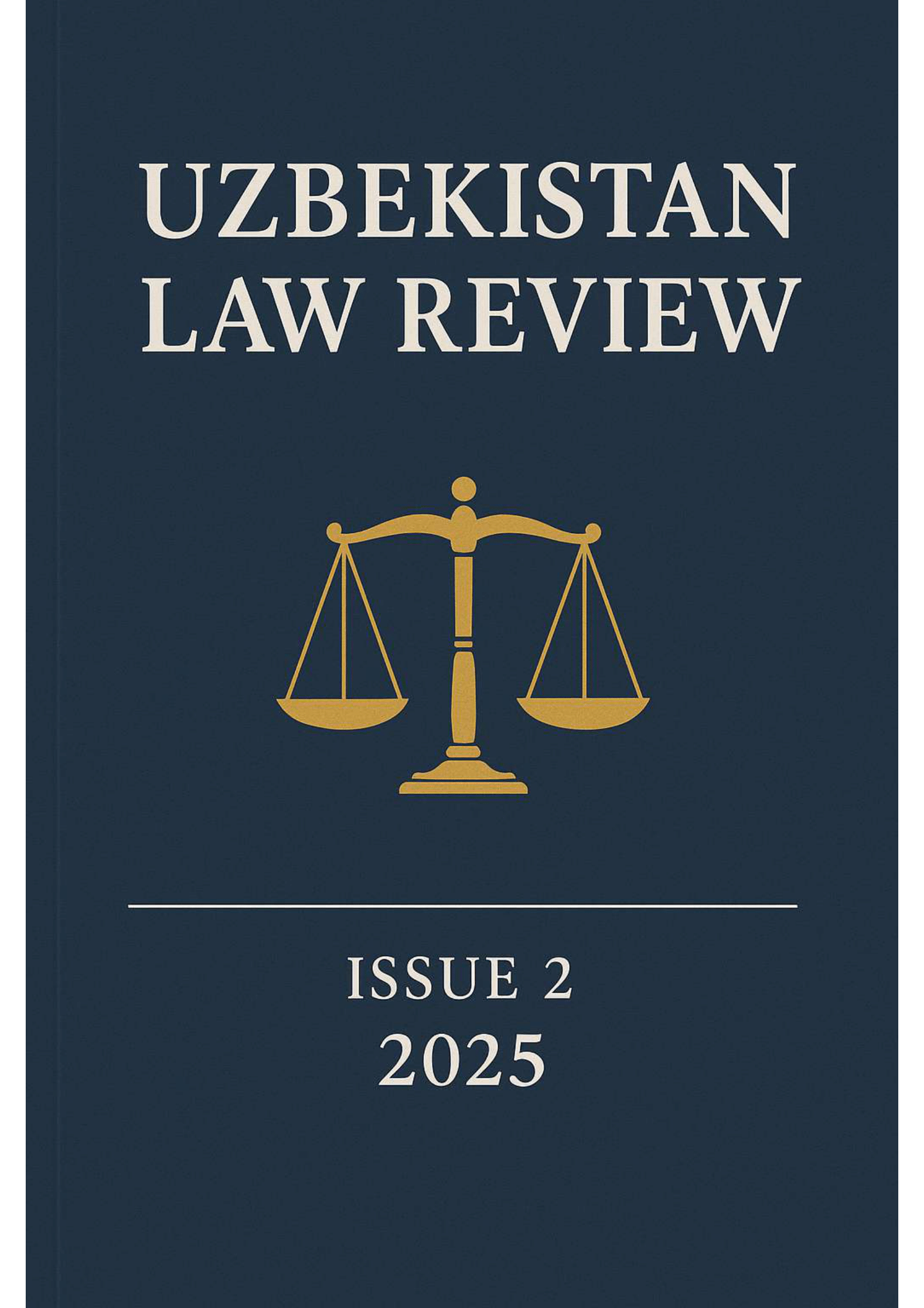ARTIFICIAL INTELLIGENCE, PERSONAL DATA, AND DIGITAL SURVEILLANCE: UZBEKISTAN’S CONSTITUTIONAL PATH TO BALANCE
Ключевые слова:
artificial intelligence, personal data, constitutional law, digital rights, surveillance, Uzbekistan, algorithmic governance, automated decision-making, legal vacuum, AI regulation, human dignityАннотация
This article examines the legal and constitutional challenges posed by the rapid development of artificial intelligence (AI) and mass data processing in Uzbekistan. While the state has introduced a foundational legal framework for personal data protection, it has yet to regulate algorithmic governance, automated decision-making, and digital surveillance mechanisms. The study highlights existing legal gaps, institutional weaknesses, and the need for a rights-based, human-centered approach to digital governance. Comparative analysis with foreign models and a critical look at Uzbekistan’s current trajectory suggest that constitutional adaptation is essential to ensure transparency, accountability, and protection of individual freedoms in the age of AI.
Скачивания
Библиографические ссылки
1. Citron, D. K., & Pasquale, F. (2014). The scored society: Due process for automated predictions. Washington Law Review, 89(1), 1–33.
https://digitalcommons.law.uw.edu/wlr/vol89/iss1/2
2. Crawford, K., & Paglen, T. (2019). Excavating AI: The politics of training sets for machine learning. Excavating.ai.
3. European Union Agency for Fundamental Rights. (2020). Getting the future right – Artificial intelligence and fundamental rights. FRA.
https://fra.europa.eu/en/publication/2020/artificial-intelligence-and-fundamental-rights
4. Yanisky-Ravid, S., & Liu, X. (2018). When artificial intelligence systems produce inventions: An alternative model for patent law at the 3A era. Cardozo Law Review, 39(5), 2215–2263.
5. Klinger, J. M., Mateosian, R., & Raji, I. D. (2021). The right to reasonable inferences: Re-thinking data privacy law for artificial intelligence. Columbia Business Law Review, 2021(2), 617–676.
6. Uzbek Agency for Personal Data Protection. (2023). O‘zbekiston Respublikasida shaxsiy ma’lumotlarni himoya qilish to‘g‘risida.
7. Constitution of the Republic of Uzbekistan. (2023). O‘zbekiston Respublikasi Konstitutsiyasi. Lex.uz.
8. World Economic Forum. (2020). Global Technology Governance Report.
https://www.weforum.org/reports/global-technology-governance-report-2020
9. Kaminski, M. E., & Malgieri, G. (2020). Algorithmic impact assessments under the GDPR: Producing multi-layered explanations. International Data Privacy Law, 10(1), 19–33.
https://doi.org/10.1093/idpl/ipz011
10. Latonero, M. (2018). Governing artificial intelligence: Upholding human rights & dignity. Data & Society Research Institute.
https://datasociety.net/library/governing-artificial-intelligence/







